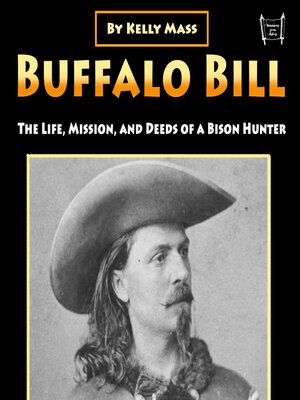
Sign up to save your library
With an OverDrive account, you can save your favorite libraries for at-a-glance information about availability. Find out more about OverDrive accounts.
Find this title in Libby, the library reading app by OverDrive.



Search for a digital library with this title
Title found at these libraries:
| Library Name | Distance |
|---|---|
| Loading... |
This audiobook is narrated by a digital voice.
William Frederick Cody was born on February 26, 1846, in a log cabin near LeClaire, Iowa Territory, to Isaac and Mary Ann Cody. His birth occurred during one of the most transformative periods in American history, as the nation was rapidly expanding westward and grappling with the question of slavery that would soon tear it apart. The Cody family embodied the restless spirit of westward migration that characterized mid-nineteenth-century America, moving frequently in search of better opportunities and new beginnings. This constant movement would shape young William's character and prepare him for a life that would span the transition from frontier wilderness to modern civilization.
Isaac Cody was a man of strong convictions who opposed slavery at a time when such views were dangerous in many parts of the expanding nation. His anti-slavery stance would eventually force the family to flee their home in Kansas Territory after receiving death threats from pro-slavery neighbors. This early exposure to political violence and the need for constant vigilance taught William valuable lessons about survival and the harsh realities of frontier life. The family's struggles also instilled in him a deep understanding of the precarious nature of existence on the edge of civilization, where survival often depended on quick thinking, physical courage, and the ability to adapt to rapidly changing circumstances.
The death of Isaac Cody in 1857, when William was just eleven years old, thrust the boy into premature adulthood and responsibility for helping support his family. The loss of his father was both a personal tragedy and a practical catastrophe, as it left the family without their primary breadwinner in an era when social safety nets were virtually nonexistent.







